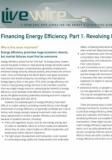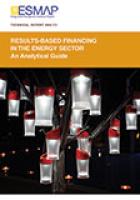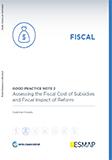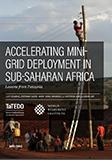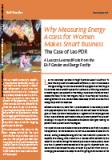Publications
This report identifies the circumstances when results-based financing (RBF) approaches might be an appropriate energy sector intervention in developing countries, especially to promote energy access and energy efficiency. It was commissioned by the Energy Sector Management Assistance Program (ESMAP) as part of a broader initiative looking at the potential for greater use of results-based approaches in the energy sector in developing countries. The fundamental idea of RBF approaches is that payments that would otherwise be made automatically are made contingent on delivery of a preagreed (set of) result(s), with achievement of the result(s) being subject to independent verification.
This report aims to help fill the gap. Its novelty rests on a conceptual examination of RBF mechanisms to derive insights on when and under which circumstances they are desirable, and the application of these insights to the energy access and energy efficiency contexts.
The report is focused on individuals and organizations who are considering whether an RBF approach would be a sensible way to deliver some specific goods or services to help meet a defined public policy goal. These individuals or organizations might then go on to implement an RBF scheme—in the language of the report, they would be the RBF scheme’s focus on the energy sector in developing countries principal.
Although there are a range of potential principals, those that are most likely to act as an RBF principal given ESMAP’s focus on the energy sector in developing countries might be either national or subnational governments or development agencies.
Vivid Economics. 2013. Results-Based Financing in the Energy Sector: An Analytical Guide. Energy Sector Management assistance Program (ESMAP);Technical report 004/13. World Bank, Washington, DC. © World Bank. License: CC BY 3.0 IGO. https://openknowledge.worldbank.org/handle/10986/17481
